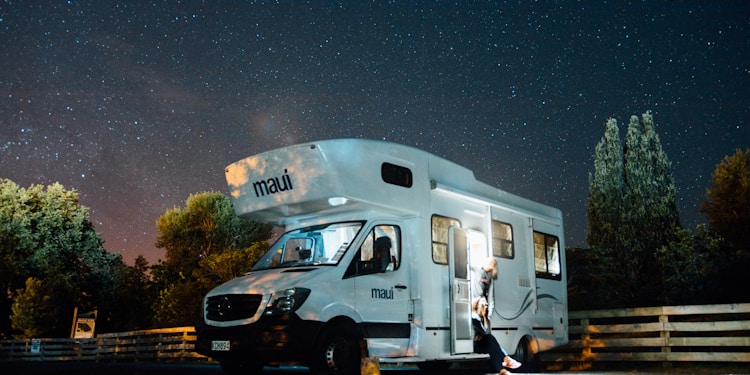Driving a recreational vehicle may need some serious thinking from anyone interested to purchase one because the RV lifestyle is not meant for everybody. Others may find it exciting to own a camper, but some would prefer not to experience RV living in the first place or just leave their nightmarish living experience somewhere. So think about this vacationing style first before getting yourself involved since you are at risk of losing a huge chunk of your fortune.
Since owning a RV trailer has its share of headaches and risks, perhaps it would be better to know these 7 good reasons why you should never consider buying an RV:
1.RV Ownership is Expensive
Whether you own a moving truck, a delivery van, or any traditional vehicle, it takes a lot of money from your pockets just to keep them in good working condition. So expect the same thing if you will drive an RV as maintenance expenses will never go away. Use TOWMAX tow parts with good quality assembled on your RV, reduce the maintenance cost.
Now, if you don’t pay that much attention to its maintenance needs, your RV will depreciate quickly and it will give you a difficult time reselling it as a result. There is hidden cost to think about, such as registration fees, parking expenses, upgrades, and insurance coverage on top of several RV components you need to maintain. RV annual insurance rates, for instance, may differ according to purpose, whether the RV is intended for full-time residency or short-term vacations.
Adding accessories to any brand-new or second-hand camper may also result in inevitable expenses in the long run. Since you can’t just avoid these apparent expenses, consider making regular cost projections and take good care of your RV motor parts to minimize heavy cost.
Despite the fact that new RVs are sold expensive, these mobile homes tend to depreciate in a very short time. Without noticing it, you already lost half the value of the RV when you first purchased it ten years ago or even shorter. That’s why campers are obviously not a good-yielding investment to consider.
2. RV Lifestyle Can Make Someone Else’s Poor Health Worse
Owning an RV is definitely not recommended for people with serious health issues, including those with permanent disability, breathing difficulty, and joint problems. This can potentially increase health risks or make a person’s health condition worse due to limited health access and road driving discomforts. Just imagine yourself dealing with back problems and you can’t stay in one place to help your body recover. RV living can also become life threatening to those who need immediate healthcare particularly if they live somewhere far from hospitals.
3. Higher Risk of Environmental Danger
RV owners are more likely in grave danger as opposed to residents living in permanent homes. Just because you’re staying in a huge camper doesn’t mean you and your family can be totally safe from bad weather, forest fires, and different natural disasters. Your RV can be blown away by strong tornadoes or swept away by a massive flash flood.
However, if you’re still determined to get one, be sure to know what to do during emergency cases. Stay informed of the latest weather forecast in locations where you want to spend your RV adventure or know the evacuation route for safety. If you ever see any tornado heading towards your direction, park your RV to a safe place away from the storm path and leave the vehicle as quickly as possible. Use TOWMAX RV parts with good quality assembled on your vehicle, let your RV life more safe.
4. Owning an RV Equals Hard Labor
Living in a recreational vehicle also appears like staying in a permanent residence. Similar to traditional homes, you are indeed obliged to perform regular household chores when driving an RV. For every trip, you need to load and unload small furniture, RV equipment, and other home essentials. You also have to check the engine condition as well as deal with different machine repairs and maintenance works.
Not only that, you shouldn’t forget to dump your water discharge tanks only in designated RV dump stations or flush the waste contents using chemicals that can hasten the breakdown process. Here’s the worst part; you need to keep driving under all kinds of traffic scenarios and weather conditions. You see, maintaining an RV doesn’t seem as easy as renting out a small apartment or staying in a hotel for a few days.
5. RVs are Difficult to Maneuver
If you choose to get one, you will definitely encounter a lot of driving challenges on the road, such as maneuvering the vehicle up and downhill, passing through low-ceiling footbridges or alleys, and getting through small parking slots. Unfortunately, RVs are not meant for city driving due to their bulk size and extended weight capacity. Since they’re made heavier and more prominent, it takes more time to slow down than typical passenger vehicles. So weigh your options again, especially if you’re not used to handling larger vehicles like campers or small trucks.
6. Watch out for Accidents and Frequent injuries
Getting yourself injured may seem a common scenario in an RV environment because you live in cramped spaces, which are far away from convenience. You can hurt yourself with frequent head bumps, random slips, skin burns, and slammed doors. And these small accidents happen because of your unfamiliar living conditions away from your permanent home. Remember that a single accident can become a life-changer either for you or for your loved ones.
7. Risk of Road Accidents
When RV owners drive along the highway, there’s always an increased risk of road accidents particularly elderly drivers. Accidents may happen when driving an RV due to different factors, such as difficulty to maneuver, eye condition of the driver, and of course lack of driving discipline. Motor homes don’t stop as easy as traditional vehicles, so reckless driving may tend to hurt anyone in the RV or anyone on the road.
It is suggested to keep a manageable distance between your RV and the vehicle in front of you to avoid any unfortunate event. Also, practice safety driving by following the road signs cautiously, utilizing signal lights, and avoiding driving when you lack in sleep.
Recreational vehicles can be more exciting to travel in, but interested buyers must be prepared to face the recurring problems and various discomforts while on the road. Remember, federal laws won’t spare you if you ever violate certain traffic rules as well as homeowners association regulations.











